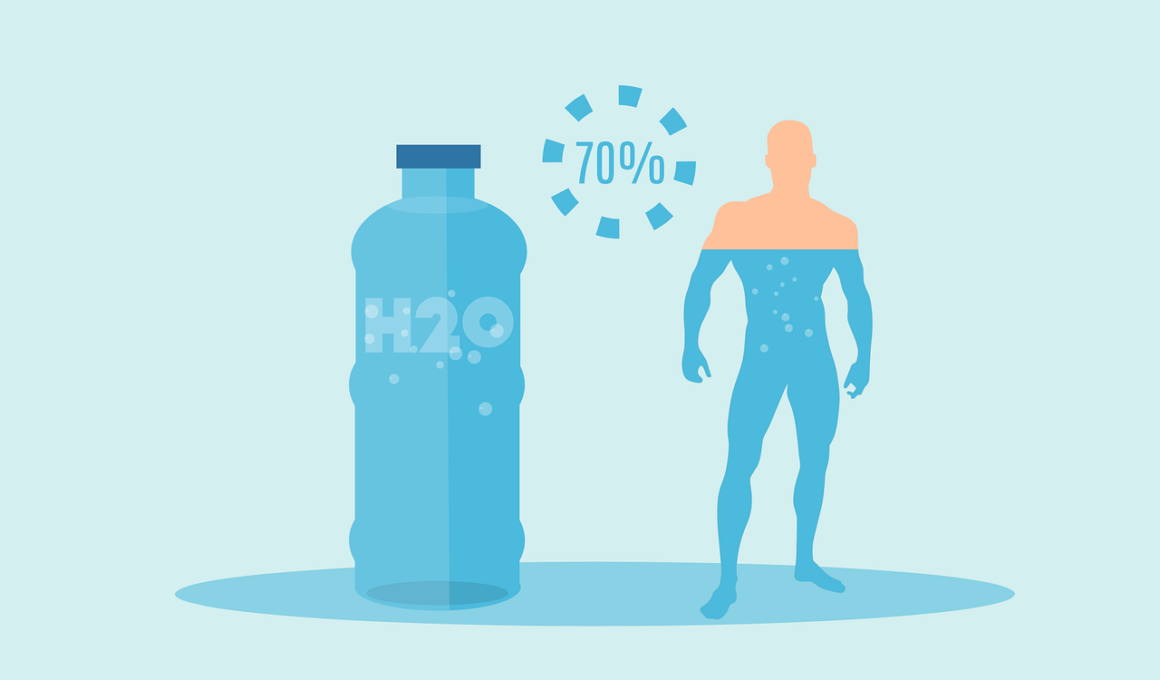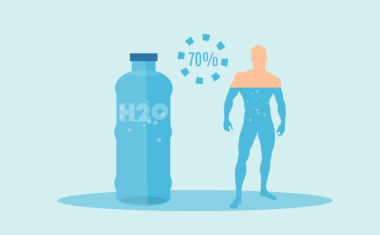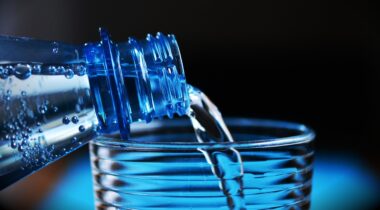The Connection Between Hydration and Immune Function in Athletes
Hydration plays a critical role in the overall health and performance of athletes, significantly influencing their immune function. Athletes engage in rigorous training and competition, which places immense stress on their bodies. This stress can affect their immune systems, making them more susceptible to illnesses. Proper hydration helps maintain the balance of bodily fluids, which is essential for transporting nutrients, regulating body temperature, and ensuring optimal metabolic processes. Adequate water intake supports the production of lymph, which is vital for the immune system’s ability to fight infections. Moreover, dehydration can result in fatiguing symptoms, low energy levels, and impaired cognitive function, all of which can lead to decreased athletic performance. Therefore, implementing effective hydration strategies is imperative for athletes aiming for peak performance while safeguarding their immune health. This means not only drinking water but also considering the use of electrolyte solutions to replenish lost nutrients. Ultimately, athletes must recognize the importance of hydration as part of their training regimen, ensuring they consume sufficient fluids before, during, and after workouts or competitions.
Various factors can affect an athlete’s hydration needs, including the type and intensity of physical activity, environmental conditions, and individual differences. Athletes engaged in endurance sports, for example, may require more fluid intake compared to those participating in strength training or short-duration activities. Humidity, temperature, and altitude intricately influence hydration status and fluid loss rates through sweat. Thus, athletes need to personalize their hydration strategies based on these parameters. To optimize immune function, it is advisable for athletes to monitor their hydration levels rigorously, utilizing methods such as tracking urine color or evaluating body weight changes before and after training sessions. A general rule of thumb suggests drinking water regularly throughout the day, along with hydrating during workouts. Incorporating electrolyte-rich beverages may also be beneficial for prolonged or vigorous training sessions, as they aid in electrolyte balance and fluid retention. Education on the signs of dehydration, such as dizziness, dry mouth, or fatigue, is vital. Awareness can prevent performance declines and support a robust immune response to combat infectious pathogens effectively.
The Role of Electrolytes
Electrolytes play a pivotal role in hydration and overall athlete health, impacting not only fluid balance but also muscle and nerve function. Sodium, potassium, calcium, and magnesium are among the key electrolytes essential for maintaining hydration levels and preventing cramping during exercise. Intense physical activities can lead to significant electrolyte loss through sweat, necessitating the incorporation of electrolyte-rich beverages or supplements during prolonged exertion. For athletes, replacing lost electrolytes is crucial for sustaining performance, especially in endurance sports. Adequate electrolyte levels help maintain plasma volume and ensure efficient oxygen transport to working muscles, improving overall endurance. Furthermore, a balanced intake of electrolytes can support cardiovascular function and regulate blood pressure. As hydration strategies evolve, athletes must learn to discern the different hydration products available in the market, evaluating their effectiveness in replenishing electrolytes. Tailored hydration plans that include monitoring individual sweat rates and adjusting electrolyte intake accordingly can enhance not only performance but also recovery. Athletes who prioritize both hydration and electrolytes stand a better chance of achieving their performance goals while bolstering their immune defenses during stressful training periods.
The timing of hydration also plays an essential role in athlete performance and immune function. Studies suggest that pre-hydration can significantly improve performance outcomes and reduce the risk of dehydration-related complications during exercise. Consuming fluids prior to engaging in physical activities allows athletes to start their workouts or competitions with optimized fluid levels, sustaining energy and focus throughout the event. In practice, athletes should aim to drink water or electrolyte beverages several hours before training, as well as smaller amounts closer to their activity start time. Additionally, post-exercise hydration is crucial for recovery, particularly if extensive fluid loss occurred. Replenishing lost fluids and electrolytes after exercise supports not only recovery but also re-establishes the body’s hydration status for the following training. Athletes should incorporate fluid intake as part of their post-workout nutrition, remaining mindful of their specific needs. Awareness of how hydration timing impacts performance can be a game-changer for serious athletes; thus, practicing strategic drinking habits can ensure optimal hydration levels while enhancing immune responsiveness effectively.
Dehydration poses a significant risk not only to an athlete’s performance but also to their immune system and overall health. As dehydration levels increase, a multitude of adverse effects can arise, including decreased endurance, heightened fatigue, and poor cognitive function. Research has established that even mild dehydration can lead to notable reductions in strength, power, and aerobic capacity. It also impairs thermoregulation, making athletes more vulnerable to heat stress and heat-related illnesses. In this context, the compromised immune response that follows dehydration can lead to increased susceptibility to infections, especially in contact sports with high risk factors. Consequently, athletes must prioritize their hydration strategies to prevent even mild dehydration. Simple measures can help monitor hydration status, such as weighing in before and after workouts. Coaches and trainers can support athletes in developing personalized hydration plans tailored to their unique needs and conditions. In doing so, they effectively bolster the athletes’ immune system to fend off pathogens that could compromise training consistency and performance over time, ensuring that hydration becomes a top priority for those seriously engaged in sports.
A comprehensive understanding of hydration’s connection with immune function empowers athletes to make informed decisions regarding fluid intake strategies. Research has continually highlighted the significant link between adequate hydration, nutrient absorption, and the body’s ability to fight infections. When athletes maintain optimal hydration levels, they are more likely to experience enhanced nutrient transport and improved metabolic reactions, beneficial for muscle recovery and immune defense. Nutrition also plays a crucial role alongside hydration; a well-balanced diet fortified with vitamins, minerals, and antioxidants complements hydration efforts, further protecting the immune system. Athletes should focus on consuming a variety of whole foods rich in micronutrients, which will actively support their physical wellbeing. Incorporating hydration education into an athlete’s training routine can cultivate awareness of hydration-related issues and empower them to manage their fluid intake effectively. Ultimately, creating a harmonious union between hydration and nutrition will not only improve athletic performance but also strengthen resilience against illnesses. Athletes who understand and appreciate the intricate connection between hydration, nutrition, and immunity are more likely to achieve sustained health and performance peaks.
Conclusion and Recommendations
In conclusion, hydration strategies should play a fundamental role in every athlete’s training regimen. Understanding the connection between hydration and immune function equips athletes to implement effective hydration practices actively. To ensure optimal performance and health, athletes must evaluate their individual hydration needs based on activity demands, environmental conditions, and personal sweat rates. Developing a personalized hydration plan can include pre-training fluid intake, during-event hydration, and post-workout replenishment. Furthermore, considering the role of electrolytes through balanced nutrition enhances the body’s ability to maintain hydration levels. Coaches, trainers, and athletes should collaborate to foster hydration awareness while providing the necessary education on preparing for competitions. Establishing consistent hydration habits will ultimately support athletes in avoiding dehydration and its adverse effects on performance and immune response. In doing so, they reinforce their bodies against potential threats, allowing them to focus entirely on their athletic goals while safeguarding their overall health. Embracing hydration strategies as a fundamental element of athletic training is indispensable in today’s sports landscape, where performance is closely linked with optimal health.
Regular hydration monitoring and education should be integrated into athletic programs to ensure that education surrounding proper hydration practices is prioritized. Potential interventions can include workshops or informational resources designed to address hydration strategies and boost athlete awareness. Information dissemination can also focus on hydration myths, beliefs, and common misconceptions that often circulate among athletes. In conclusion, achieving solid hydration and immune health strategies requires a comprehensive understanding of hydration’s role for athletes. This will ultimately fortify their performance capabilities while strengthening their immune responses. Throughout their athletic careers, both coaches and athletes must remain vigilant in evaluating, adapting, and adjusting these strategies based on experiences and outcomes.





